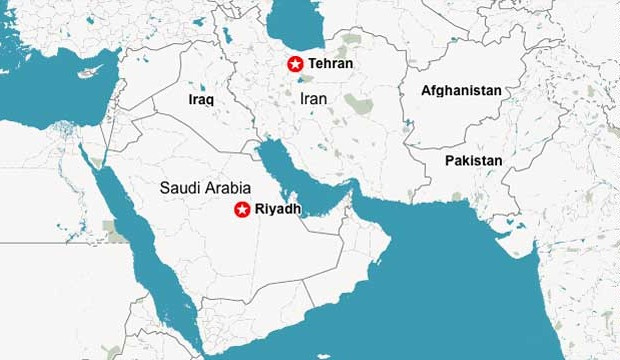Will Iran Move towards Détente with Saudi Arabia?

Hassan Rouhani’s recent speech in a gathering of Iranian diplomats was widely covered by the media for the president’s fierce anti-Trump rhetoric and his veiled threat that Iran would block the Strait of Hormuz, the lifeline for Middle East oil export, in case of restoration of US’ sanctions on Iran’s energy industry. However, in the same speech, Rouhani said that Tehran seeks improved ties with its Arab neighbors in the Persian Gulf, naming Saudi Arabia, the UAE, and Bahrain. Has Tehran decided to shift in its regional policy and rework relations with its neighbors? Iranian Diplomacy has discussed the prospects of rapprochement between Tehran and its Arab neighbors with Davoud Hermidas Bavand, an expert in international relations and former diplomat.
IRD: President Rouhani has spoken of resolving differences and establishing friendship with Saudi Arabia, United Arab Emirates and Bahrain. Is this a signal that we will see a shift in Tehran’s Middle East policy?
DHB: Rapprochement with regional states was on Rouhani’s agenda since he became president in 2013. However, due to domestic and international circumstances, he could not manage to realize his agenda. Rouhani has always emphasized détente and expansion of ties with neighbors. His recent remarks could open a new chapter in interstate relations in the Middle East and the Persian Gulf region. Tensions and disputes are to the detriment of all countries in the region.
IRD: But we also see a contradiction in Rouhani’s speech. He reiterated threats about blocking the Strait of Hormuz which is a threat against the interests of these countries.
DHB: We should see his words in the context. Several countries do not export their oil via tankers and through the Hormuz Strait anymore, but via the Mediterranean and the Arabia seas. UAE has been using transferring its oil via Oman, instead of the Strait of Hormuz. In wartime, countries have the right to stop and inspect vessels heading for hostile countries, but blocking the strait during peace time is not legally grounded. We are not at war now, and Rouhani’s remarks hopefully will not fuel Iranophobia. Therefore, we shouldn’t take Rouhani’s threat at face value, but see it more of a warning to the United States. Rouhani’s strong tone was directed towards Washington, not Arab countries. So I see no contradiction in his words.
IRD: Should we expect a change of behavior in other Persian Gulf capitals such as Riyadh?
DHB: Tensions of the recent years have had no benefits for Saudi Arabia, and have not tilted regional balance in the way they favored. So it is time they rethink they behavior, just as Tehran has done. Multibillion dollar arms deals will not bring security for Saudi Arabia, nor can they bring peace to the region. They either spill blood or waste money. Détente is in the interest of the region. Regional states come together in organizations such as OPEC and define common interest in sectors such as energy and economy. Continuing tensions on the other hand will eventually deteriorate the chaos in the Middle East, and OPEC will also lose its purpose. Détente is beneficial not only for Iran, but also for Arab countries.
IRD: You said that Rouhani could not realize his goal of détente with neighbors during his presidency. In the light of sanctions snapback, increasing US pressures, and Riyadh and Abu Dhabi’s vocal support for Trump’s Iran policy, is there any chance that Rouhani realizes his goals? Or it will just remain a lip service?
DHB: If Arab countries of the Persian Gulf believe that Rouhani’s remarks are the official stance of Iran, they will also change their behavior and engage in negotiations. This could happen even despite US pressures. The first step should be taken by Iran so that change takes place on the other side.
IRD: Should Tehran change its strategy in Syria, Yemen, Iraq, and Lebanon before moving towards rapprochement with Riyadh and Abu Dhabi? Or it’s the other way around?
DHB: These conflicts cannot be solved between Tehran and Riyadh overnight. Particularly about the cases of Syria and Yemen, there needs to be an inclusive consensus. And there will be no prospect for a solution unless field developments come to a conclusive point. But if dialogue between Iran and Saudi Arabia takes place unconditionally and regardless of the events on the ground, hostilities may decrease. This will pave the way for further steps and finally a détente.
* This piece was originally published in Iranian Diplomacy Persian.

